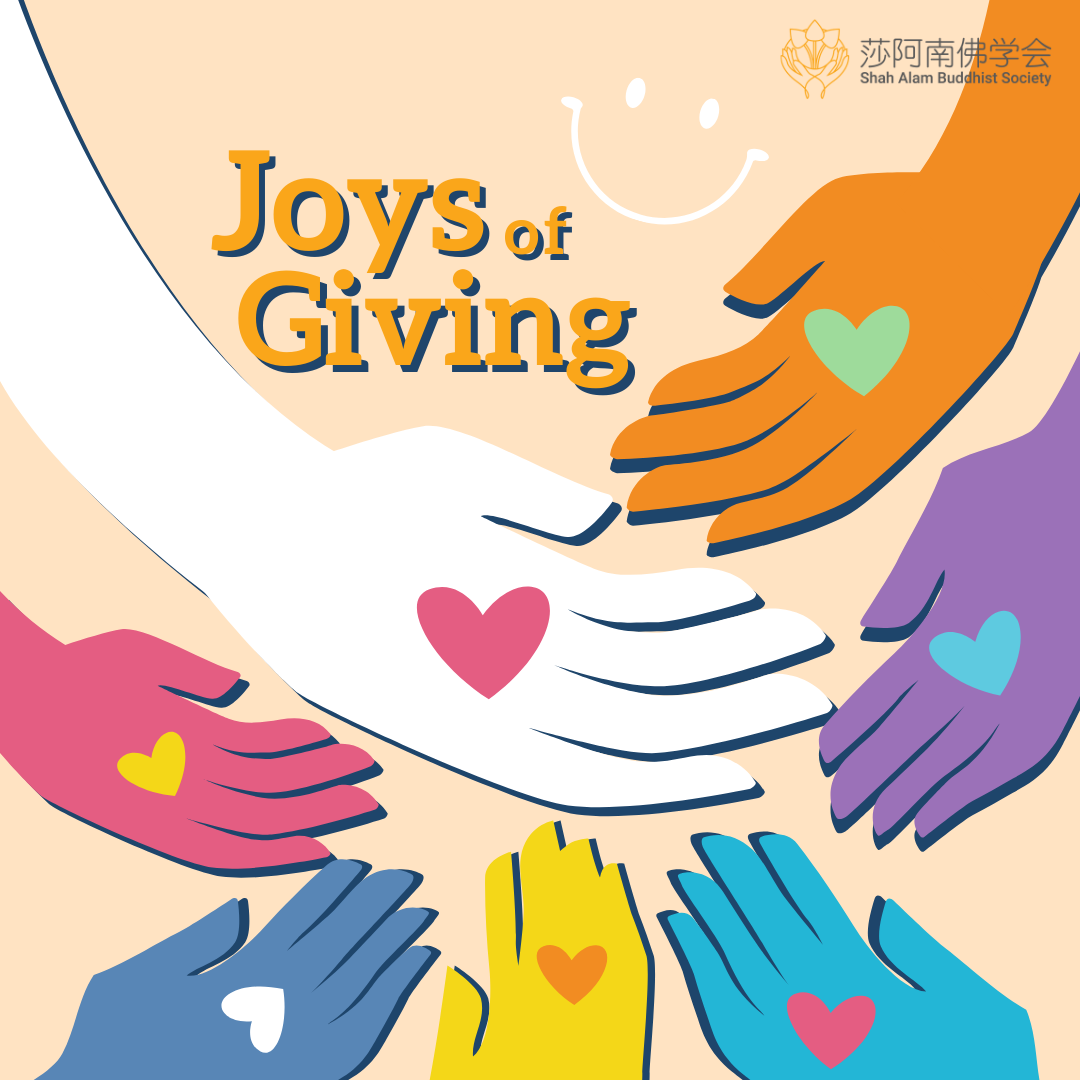Joys of Giving

Translated from Sanskrit, giving is called “dāna”. The Buddha explained that there are many benefits of giving, such as being loved by others, as well as in the future. What we give is actually not lost, but is returned to the giver in the form of karmic rewards, most notably, wealth. Like all good deeds, an act of giving will bring us blessing in the future, in accordance with the karmic law of cause and effect. Thus, when practiced in itself, it is a basis of merit or wholesome karma.
However, when giving is coupled with morality, concentration and insight, it leads to ultimately the liberation from samsara, the cycle of repeated existence. When preaching to a newcomer, the Buddha always started with dāna. Do you know why? Because it is the basis for developing all other spiritual qualities. It is the simplest, yet deeply fundamental.
Ajahn Chah said, “We begin to do away with selfishness through giving.” By giving away what is ours, we reduce the attachment of ‘I’, ‘me’ and ‘mine’. By using our possessions or time to benefit others, we develop altruism towards others. Thus, giving helps to rid our mind of the defilements by conditioning the mind to let go of attachments and extinguish ill-will.

Image Source: https://unsplash.com/photos/qgHGDbbSNm8
The Buddha stressed that the efficacy of a giving is not merely dependent on the gift but also on the intention and state of mind of the giver, and the purity of the recipient. If all gifts are righteously obtained, and both the giver and recipient are pure, the giving rises to its fullest benefit and fruition.
Most often than not, we do giving without noticing what is going on in our minds and hearts, thus we fail to experience what is possible through it. We need to be aware whether we give due to compassion, out of fear or shame, to get rid of something or we are doing it simply because everyone else is doing it. Sometimes our giving is a tit for tat, for example, someone gave something to us and so we give something in return. Notice whether we give with joy, annoyance, doubt, or regret.

Image Source: https://unsplash.com/photos/fJTqyZMOh18
The Buddha emphasized the joy of giving – giving is not meant to be done reluctantly, rather it should be performed when the giver is “delighted before, during, and after the giving.”
In this world, monks, there are three things [of value] for one who gives. What are these three things?
Before giving, the mind of the giver is happy. While giving the mind of the giver is made peaceful. After having given, the mind of the giver is uplifted. (A 3.6.37)
Lastly, at the time of death, giving or dāna sustains us. A generous man will never regret his life as he lays dying nor will his mind be beset with fears regarding his future. As he recollects all his generosity and all his support of what is good on his deathbed, even though those deeds were done many years ago, then the mind becomes quiet, peaceful and set in the way of Dhamma. So, sisters and brothers, let’s rejoice in giving!

Image Source: https://unsplash.com/photos/YrEylIW5PDc


